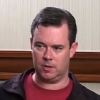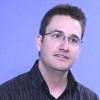InfoQ Homepage .NET Content on InfoQ
-
Joseph Molnar discusses scanR
In this interview from QCon San Francisco 2008, Joseph Molnar discusses scanR, choosing .Net for scanR, the architecture of scanR, working with mobile carriers, scaling, challenges which were encountered, .Net components and libraries used, major problems encountered and their solutions, managing scanR, and what would be done differently if scanR was rewritten from scratch.

-
Guy Steele Interviews John McCarthy, Father of Lisp
In this phone interview that took place in front of an audience at OOPSLA 2008, Guy Steele spins a yarn with John McCarthy, the father of Lisp, attempting to find out some details surrounding the language inception in the 50’ and its later evolution.

-
Don Syme Answering Questions on F#, C#, Haskell and Scala
In this interview made by InfoQ’s Sadek Drobi, Don Syme, a Senior Researcher at Microsoft Research, answers questions mostly on F#, but also on functional programming, C# generics, type classes in Haskell, similarities between F# and Scala.

-
Erik Meijer on LINQ
In this interview filmed during QCon SF 2008, Erik Meijer talks about less known LINQ features, like the ability to do meta programming or the fact that LINQ works against any data collection that implements the sequence operators. Meijer also talks about the differences between functional languages and objectual ones, asynchronous computation, and the evolution of languages.

-
Lennart Augustsson on DSLs Written in Haskell
In this interview filmed at QCon SF 2008, Lennart Augustsson talks about writing DSLs in Haskell, presenting the advantages offered by the language. In that context, he talks about embedded DSLs, static and dynamic languages, syntax and semantics, monads and many other related topics.

-
Scott Stanfield Discusses Silverlight
In this interview from QCon San Francisco 2008, Vertigo CEO Scott Stanfield discusses Silverlight. Topics covered include the Silverlight feature set, the development paradigm, developer/designer workflow, future changes in both versions 2 and 3, Silverlight adoption, cross-platform support, the future of RIAs, cloud computing, and business RIAs.

-
Dan Farino On MySpace’s Architecture
In this interview taken by InfoQ’s Ryan Slobojan, Dan Farino, Chief Systems Architect at MySpace, talks about the system architecture and the challenges faced when building a very large online community. Because MySpace is built almost entirely on the .NET Framework, Dan explains how a .NET product scales on hundreds of servers.

-
John Lam on IronRuby, Microsoft and Open Source
In this interview from RubyFringe, John Lam talks about his work on IronRuby and how Microsoft is approaching Open Source software development.

-
Ted Neward on Present and Past Languages
In this interview filmed during QCon London 2008, Ted Neward, author of "Effective Enterprise Java", talks about languages, statical, dynamical, objectual or functional. He dives into Java, C#, C++, Haskell, Scala, VB, and Lisp, to name some of them, comparing the benefits and disadvantages of using one or another.

-
David Laribee on Alt.NET and its Mission
Greg Young interviews Dave Laribee who is the founder and current lead administrator of ALT.NET, a conference where varied and fringe ideas on programming languages and practices are encouraged.

-
Simon Peyton Jones on Programming Languages and Research Work
In this QCon London 2008 interview, computer scientist and researcher Simon Peyton Jones discusses properties of functional programming languages, and particularly Haskell, that have inspired some features in mainstream languages. He gives his opinion on the issues of syntax and language complexity and talks about some research work on subjects such as Data parallelism and transactional memory.

-
Joseph Hill About Important Developments in Mono
Joseph Hill talks about the current status of Mono, the release of Mono 2.0, and important developments related to Mono like Cecil, MoMA, and Moonlight.
